I have an input file in the format:
(a n), (a n-1), ... (a 0)
How can I form a list like below in Pascal
type
tt = ^t;
t = record
a: Integer;
n: Integer;
next: tt
end;
For example:
(5 10), (5 9), (5 8), (5 7), (5 6), (5 5), (5 4), (5 3), (5 2), (5 1), (5 0)
Should be like on the image:

New code (works as expected):
program ex4_19;
type
tt = ^t;
t = record
a: Integer;
n: Integer;
next: tt
end;
var
ukzv, ukrs: tt;
inp: text;
raDone: boolean;
i: integer;
str: string;
begin
assign(inp, 'f1.txt'); reset(inp);
assign(output, 'out.txt'); rewrite(output);
new(ukzv);
ukrs:=ukzv;
read(inp, str);
writeln(str);
for i:=1 to length(str) do
begin
case str[i] of
'(':
begin
raDone:=false;
new(ukzv^.next);
ukzv:=ukzv^.next;
ukzv^.a:=0;
ukzv^.n:=0;
end;
'0' .. '9':
begin
if raDone = false then
ukzv^.a:=ukzv^.a * 10 + (ord(str[i]) - ord('0'))
else
ukzv^.n:=ukzv^.n * 10 + (ord(str[i]) - ord('0'));
end;
' ':
begin
if raDone = false then
begin
raDone:=true;
end;
end;
')':
begin
ukzv^.next:=nil;
end;
end;
end;
ukzv:=ukrs;
while ukzv^.next <> nil do
begin
writeln(ukzv^.next^.a, ' ', ukzv^.next^.n);
ukzv:=ukzv^.next;
end;
end.
I have the error "Invalid numeric format" because after the second number we have ')'. I don't know how to read number only until ')' because numbers can be different (1-1000).